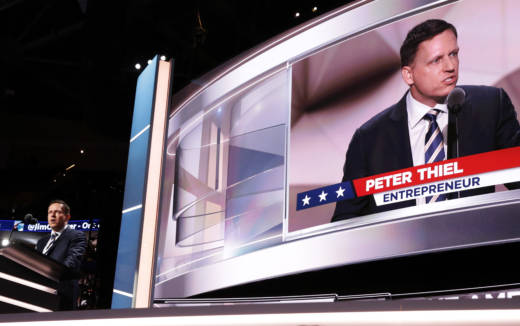Whereas Altman and Zuckerberg saw Thiel’s donation as an issue of free speech, the opposing side understands the donation as supporting hate and violence toward women and people of color.
Or as Ellen Pao, the co-founder of Project Include, argued in a blog post: “This isn’t a disagreement on tax policy, this is advocating hatred and violence. And donating $1.25 million is a lot more than speech. Money is power. Giving more power to someone whose ascension and behavior strike fear into so many people is unacceptable.”
Of course, Thiel hasn’t said why he donated the money to Trump’s campaign. And as Zuckerberg pointed out in an internal message to Facebook employees, we can’t assume Thiel agrees with Trump on everything. Zuckerberg wrote, “There are many reasons people might support Trump that do not include racism, sexism, xenophobia or accepting sexual assault.“
And it’s here, in that granting of the benefit of the doubt, that “implicit bias” shows up, said Karla Monterroso, vice president of programs for Code2040, which aims to bring more African-Americans and Latinos into tech. The term is often defined as the unconscious skepticism or suspicion one might have toward a particular group of people. But she says it can also be defined by the benefit of the doubt we extend to a group of people.
“If you are at the table with someone and this person has motivated a line of thinking for you, you’re like, I know this is a good person,” Monterroso said. In other words, you give them the benefit of the doubt even though actions suggest the opposite.
It’s all about context, Monterroso said. In the context of friendship or mentorship, Thiel’s donation isn’t ominous but an act that should be protected as free speech. Whereas to a woman or person of color, said Monterroso, Thiel’s donation could appear threatening. She said that to discount the reality of women or people of color is to fall into the trap of implicit bias.
Regardless, shouldn't Thiel be allowed to donate to Trump and invest in technology companies? And here, Monterroso said, the lines of this controversy are being conflated with a bigger national conversation that’s being had about the perceived close-mindedness of the left.
Monterroso said this debate is very specific to the time and place of Silicon Valley. It’s a time when technology companies have identified the lack of diversity in their industry as a problem and publicly dedicated themselves to be more inclusive of women, blacks and Latinos. And if these companies want women, blacks and Latinos to believe their dedication is sincere and they are welcome, she said, then having Thiel as part of the leadership undermines that message.
This story is part of our ongoing series on Techquity: Diversity, Inclusion and Equity in Silicon Valley.
